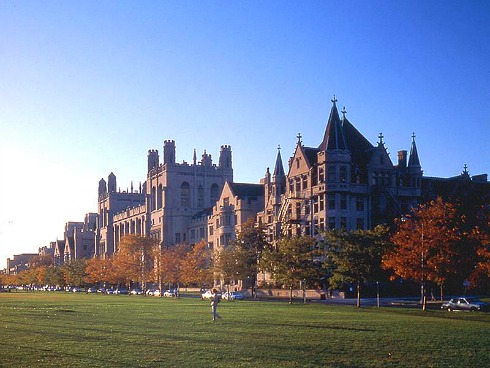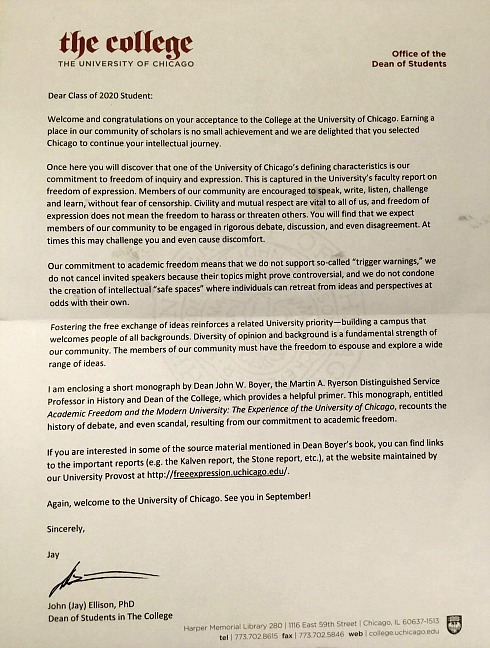Archives
AND MORE...

3 Days of Venom at UPenn
_____________________

America's Future Voters?
_____________________

Idiots of Wahhabi U.
_____________________

Institutions of Hate
_____________________
August 24, 2016
Dear Cupcakes
For those of you who've missed this cultural phenomenon, in the name of emotional well-being college students have been increasingly demanding protection from words and ideas they don't like (see below).
No joke. The multi-culti, political-correctness garbage infecting American society has now produced a whole new generation of cupcakes, who must be handled with extreme care.
Many universities have been creating "safe spaces”, where students can relax and not be exposed to ideas that might be stressful or anxiety-inducing. Brown University, for example, created a room last year "with cookies, coloring books, bubbles, Play-Doh, calming music, pillows, blankets and a video of frolicking puppies," because a debate on sexual assault was taking place on campus.
Other universities have canceled "controversial" speakers. Not speakers like Iran’s former President, the genocidal Mahmoud Ahmadinejad, but rather conservative speakers like former Secretary of State Condoleezza Rice, conservative columnist George Will, Wall Street Journal columnist Jason Riley, and conservative pundit Michelle Malkin.
Thankfully, it appears that some universities, like the University of Chicago are not on board with this ridiculous trend.
In a letter to its incoming class of 2020, U of Chicago made it clear that it does not support so-called “trigger warnings” or offer safe spaces that allow students to “retreat from ideas and perspectives at odds with their own."
To use a common Twitter abbreviation: SMH (Shaking My Head).
Intellectual Takeout | August 23, 2016
Univ. Of Chicago Pushes Back On Trigger Warnings, Safe Spaces
Letters sent to the incoming class of 2020 make it clear the University of Chicago isn't a fan of trigger warnings or safe spaces.
By Jon Miltimore

University of Chicago
Academics around the country are embracing the relatively new trend of using trigger warnings to shield students from ideas that might be discomforting or trauma-inducing. These ideas often include topics that touch on “racism, classism, sexism, heterosexism, cissexism, ableism, and other issues of privilege and oppression."
Though there is some debate surrounding how widespread the use of trigger warnings actually is, a survey conducted last year by the National Coalition Against Censorship found that a majority of educators had used trigger warnings at one time or another.
Similarly, many universities are creating “safe spaces” where students can relax free from ideas that might be stressful or anxiety-inducing. Among these is Brown University, which last year created a room “with cookies, coloring books, bubbles, Play-Doh, calming music, pillows, blankets and a video of frolicking puppies” because a debate on sexual assault was taking place on campus.
Others (sic) universities have canceled “controversial” speakers—Condoleezza Rice, George Will, Jason Riley, and Michelle Malkin, among them—under pressure from faculty or students.
Apparently not all universities are on board with this trend. The University of Chicago recently made it clear to its crop of incoming students that academic freedom and inquiry remain pillars at the institution, and that the university does not support "so-called" trigger warnings or offer safe spaces that allow students "to retreat from ideas and perspectives at odds with their own. Here is how the university welcomed its incoming class of 2020:
Welcome and congratulations on your acceptance to the college at the University of Chicago. Earning a place in our community of scholars is no small achievement and we are delighted that you selected Chicago to continue your intellectual journey.
Once here you will discover that one of the University of Chicago’s defining characteristics is our commitment to freedom of inquiry and expression. … Members of our community are encouraged to speak, write, listen, challenge, and learn, without fear of censorship. Civility and mutual respect are vital to all of us, and freedom of expression does not mean the freedom to harass or threaten others. You will find that we expect members of our community to be engaged in rigorous debate, discussion, and even disagreement. At times this may challenge you and even cause discomfort.
And then, the coup de grace:
Our commitment to academic freedom means that we do not support so called ‘trigger warnings,’ we do not cancel invited speakers because their topics might prove controversial, and we do not condone the creation of intellectual ‘safe spaces’ where individuals can retreat from ideas and perspectives at odds with their own.
You can read the entire letter below.

Original article here.
(CLICK HERE to see how students and alumni responded.)
Log In »
Notable Quotables
"Mr. Netanyahu is one of the most media-savvy politicians on the planet. On Friday he appeared live via video link on 'Real Time with Bill Maher,' taking the host’s alternately sardonic and serious line of questioning with gazelle-like alacrity."
~ Anthony Grant, jourrnalist who has written for many major newspapers and worked in television at Paris and Tel Aviv, interviewing former PM Benjamin Netanyahu on Monday, at the outset of Mr. Netanyahu's new book (more here).


